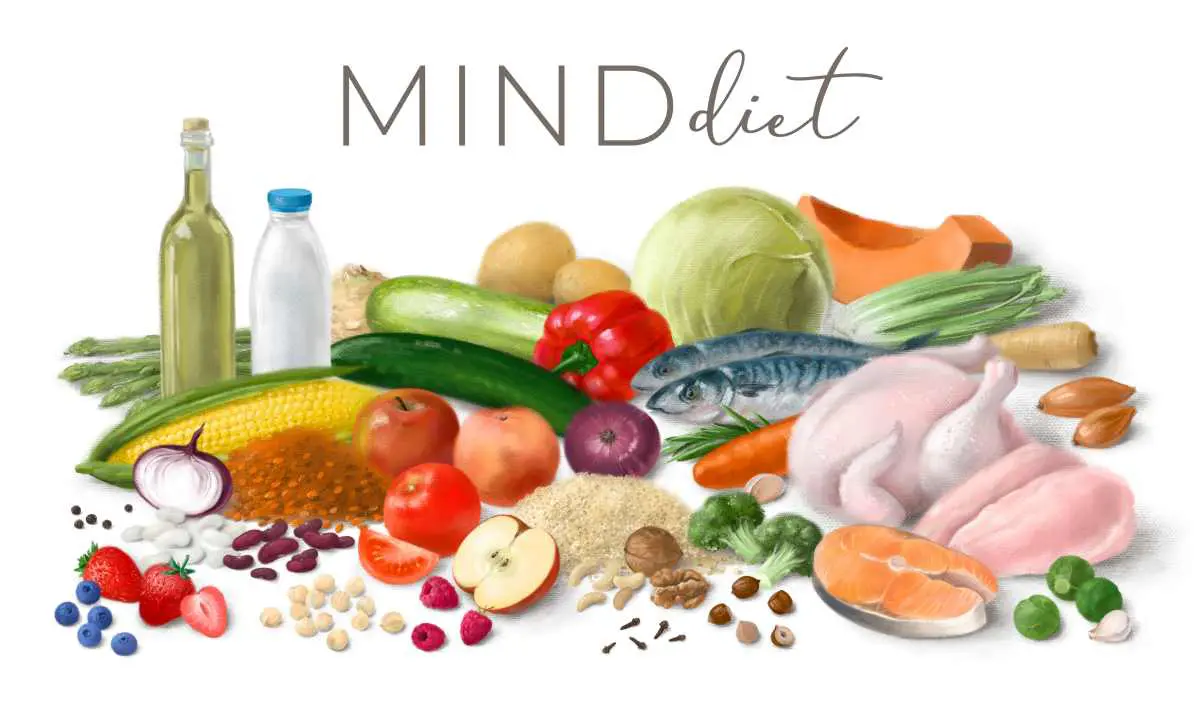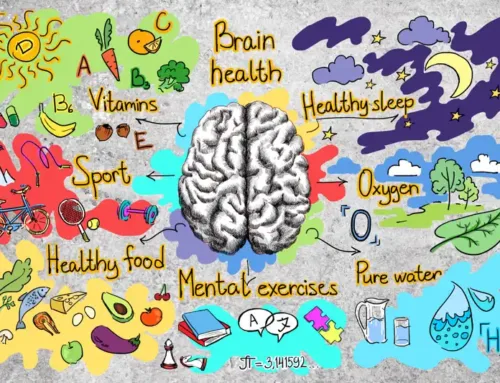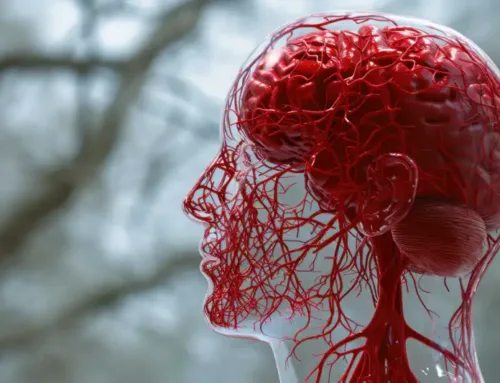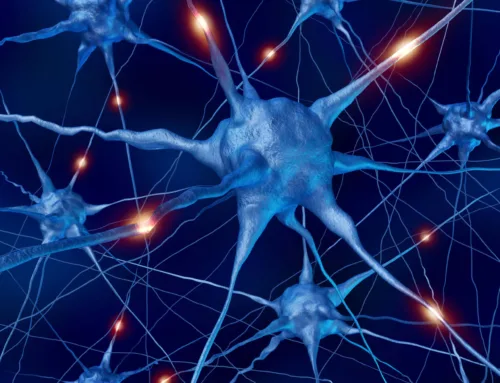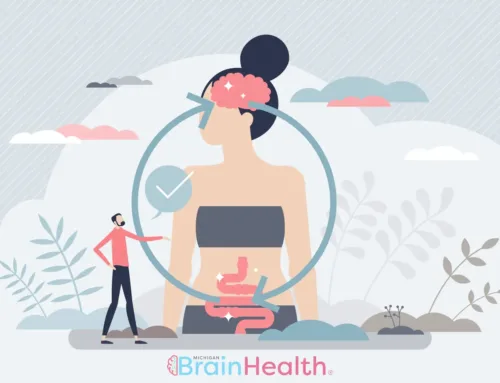Information contained in this post is republished with permission from BodySite about the MIND Diet, a brain-healthy patient education and eating plan
How Can a Diet Help the Brain?
Our brains tend to function the best when receiving the vitamins, minerals, and antioxidants that it needs to remain well nourished and protected against oxidative stress, which is an imbalance between free radicals and antioxidants in your body.
If our brains are deprived of good quality nutrition and fueled with diets high in refined sugar or other harmful substances instead, they can be greatly damaged which results in negative effects. What we eat directly affects the structure and function of our brain and, ultimately, our mood.
This is why it’s important that each of us follow a brain-healthy diet, especially if we are at risk of cognitive decline and/or dementia, or if we just want to get a head start on protecting our brain. Research has found that the foods that are best for your brain are the same as those that protect your heart and blood vessels. Nutritionists have also emphasized that a great strategy to follow is a dietary pattern that incorporates fruit, vegetables, legumes, and whole grains while getting protein from plant sources and fish. Healthy fats such as olive oil and avocado oil should also be chosen over saturated fats.
What is the MIND diet?
MIND is an acronym for the Mediterranean-DASH Intervention for Neurodegenerative Delay. It combines the Mediterranean diet and the DASH diet to create dietary habits that focus on brain health. The MIND diet was published in 2015 in the journal Alzheimer’s and Dementia by Dr. Martha Clare Morris.
The research shows that eating certain foods and avoiding others on this diet slows brain aging by 7.5 years and lessens the risk of cognitive decline and dementia, including Alzheimer’s disease.
The study performed by Dr. Morris and her colleagues follows 758 dementia-free participants who kept diligent food diaries for 4.5 years. They divided foods into 10 brain-healthy food groups and 5 brain-unhealthy ones. Participants’ diets were assessed weekly with a MIND diet score — a tally of brain healthy and unhealthy foods consumed.
Those with the highest MIND diet score, eating more brain-healthy and less brain unhealthy foods, had a 53% reduction in Alzheimer’s risk. Those that did not follow the guidelines rigorously — meaning they ate a lot less brain-healthy foods — still had a significantly reduced risk of Alzheimer’s of 35%.
What Are the Guidelines for This Plan?
The principles of this diet are simple and are similar to those of the Mediterranean and DASH diets. The MIND diet encourages loading up on vegetables, berries, healthy protein sources, and choosing healthier types of fat over saturated fats and hydrogenated oils (trans fats), both of which have been associated with many different diseases, including heart disease and even Alzheimer’s.
Here’s an overview of what the diet looks like:
What to Eat:
- Green, leafy vegetables
- All other vegetables
- Berries
- Nuts
- Olive oil
- Whole grains
- Beans
- Fish
- Poultry
- Wine (primarily red, no more than one glass daily)
What to Avoid:
- Butter and margarine
- Full fat cheeses
- Red meat
- Fried food
- Pastries and sweets
All of the foods to avoid are higher in saturated and trans fats. The MIND diet plan also includes more in-depth information on each food to help you understand why each one is good or bad.
While exercise is not technically part of the diet, the diet will also emphasize the importance of regular physical activity. Fitting regular exercise into everyday life will allow you to achieve the maximum results throughout the MIND diet. Physical activity increases blood flow to all parts of the body, including the brain, so it’s important to keep it moving.
Our BodySite MIND diet program also goes into detail on the 6 pillars of brain health: physical activity, food & nutrition, medical health, sleep & relaxation, mental fitness, and social interaction. Each pillar is equally important to brain health and should be kept in mind throughout your daily life.
Implementing the MIND Diet
While the principles of this diet are simple, beginning a new way of eating can be quite a hurdle. We know that you are busy and that it can be extremely difficult to aggregate all the information you need to create a brand new eating plan. That’s where our BodySite MIND diet program comes in.
Fortunately, our program will provide you with daily recipe recommendations, motivation, guidance, and to-dos in order to help you easily transition to a new diet tailored to YOU. That way you can maintain your healthy eating plan for life.
Additionally, our program has access to a complete lifestyle web portal and app for iPhone and Android. You can keep a journal, track your progress and follow your program materials anytime, every day.
The 6 Pillars of Brain Health
The way you live your life has a huge impact on your brain health. How much you exercise, what you eat and drink, how you manage your health, how well you sleep, how you deal with stress, and the way you socialize are all equally important to your brain health. Let’s go through each one:
Physical Activity
Exercise tends to improve both blood flow and memory and stimulates chemical changes in the brain that improve learning, mood, and thinking. Those who regularly exercise have a lower risk of developing Alzheimer’s disease.
Food & Nutrition
As you age, your brain is exposed to more harmful stress due to lifestyle and environmental factors, resulting in a process called oxidation, which damages brain cells. Foods that are rich in antioxidants can help fend off the harmful effects of oxidation in your brain.
Medical Health
Hypertension, diabetes, obesity, depression, head trauma, higher cholesterol, and smoking all increase the risk of dementia. You have the ability to control and reduce these risks. Get your annual check-up, follow your doctor’s recommendations and take medications as prescribed.
Sleep & Relaxation
Sleep gives you energy, improves your mood and your immune system, and may reduce the buildup in the brain of an abnormal protein called beta-amyloid plaque, which is associated with Alzheimer’s disease. Practicing meditation and managing stress may help fight age-related decline in your brain health.
Mental Fitness
Mental exercise is just as important as physical exercise when it comes to keeping your brain fit and healthy. Mental exercises can improve your brain’s functioning and promote new brain cell growth, which will decrease your likelihood of developing dementia. Many activities improve mental fitness and neurofeedback is one very helpful tool.
What’s Inside the MIND Diet Plan?
Guiding patients through new eating habits and lifestyles can be difficult, and it can definitely be a chore to collect all of the needed information.
Fortunately, this program will provide you with daily recipes, guidance, videos, and tasks in order to help you transition to the MIND Diet made especially for you. Our goal is for you to maintain your brain-healthy eating plan even after the 28 days of the program are up.
Each day, your program will start with some helpful tips for maintaining and improving your brain health that you can follow throughout your everyday life. Here is an example:
These tips are intended to keep you motivated to use these tips and ideas that will help you maintain a brain-healthy lifestyle during and after the MIND Diet Plan. Participants in the program can take in the information provided and use it throughout their daily lives.
Their daily motivation or tips are then followed by daily tasks that will keep them on a healthy, grounded schedule throughout their plan. Here is an example:
These tasks encourage participants to make sure they are tracking the food and metrics that need to be tracked in order to keep me updated with their progress. On certain days, the daily tasks are followed by daily messages, which are educational videos that have to do with the topic of that day.
Following these tasks/daily messages are the daily recipes with instructions that participants will follow. You are provided with a shopping list for each week so that you never miss a day of good meals. Here is an example:
Why the MIND Diet?
Use the MIND Diet today so you can experience the benefits that this eating style has on your brain, including a reduced risk of cognitive decline/dementia. Check out the MIND Diet today! The whole program is available to you for the low price of a one-time payment of $89. You get to keep all the downloadable content and the program can be accessed from your computer and mobile devices. There is no charge for the app itself.
Your plan includes:
- Tailored content to help you achieve your goals
- 24/7 access to your account on the Johnson Chiropractic Neurology & Nutrition wellness portal where you can view all of your content, track your progress, and more!
- Easy-to-use iOS or Android app so you can access your plan on the go!
To get started right now, click the button below:
Yes! I Want To Sign Up for The MIND Diet Plan
Always remember one of my mantras, “The more you know about how your body works, the better you can take care of yourself.”
For more details about the natural approach I take with my patients, take a look at the book I wrote entitled: Reclaim Your Life; Your Guide To Revealing Your Body’s Life-Changing Secrets For Renewed Health. It is available in my office or at Amazon and many other book outlets. If you found value in this article, please use the social sharing icons at the bottom of this post, and please share with those you know who are still suffering from chronic health challenges, despite receiving medical management. Help me reach more people so they may regain their zest for living! Thank you!
ALL THE BEST – DR. KARL R.O.S. JOHNSON, DC, BCN – DIGGING DEEPER TO FIND SOLUTIONS
SOURCES:
1. https://www.ncbi.nlm.nih.gov/pmc/articles/PMC4581900/
2. https://www.health.harvard.edu/healthbeat/foods-linked-to-better-brainpower

